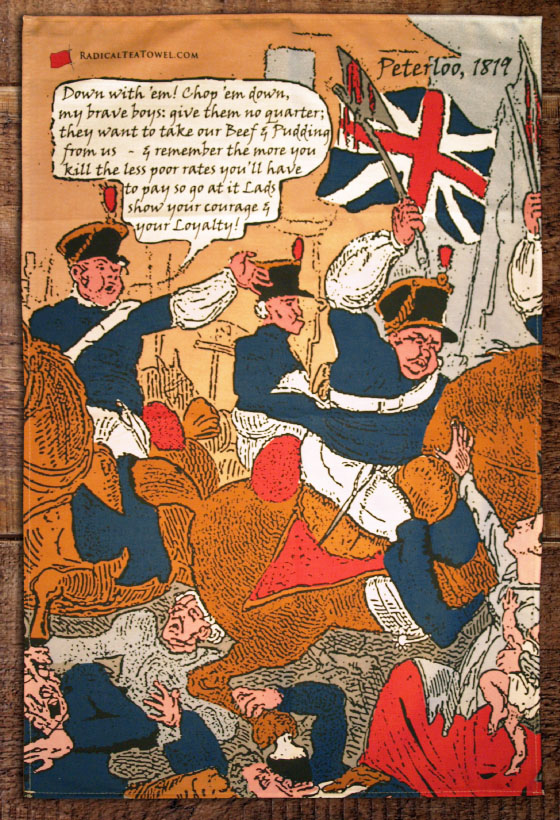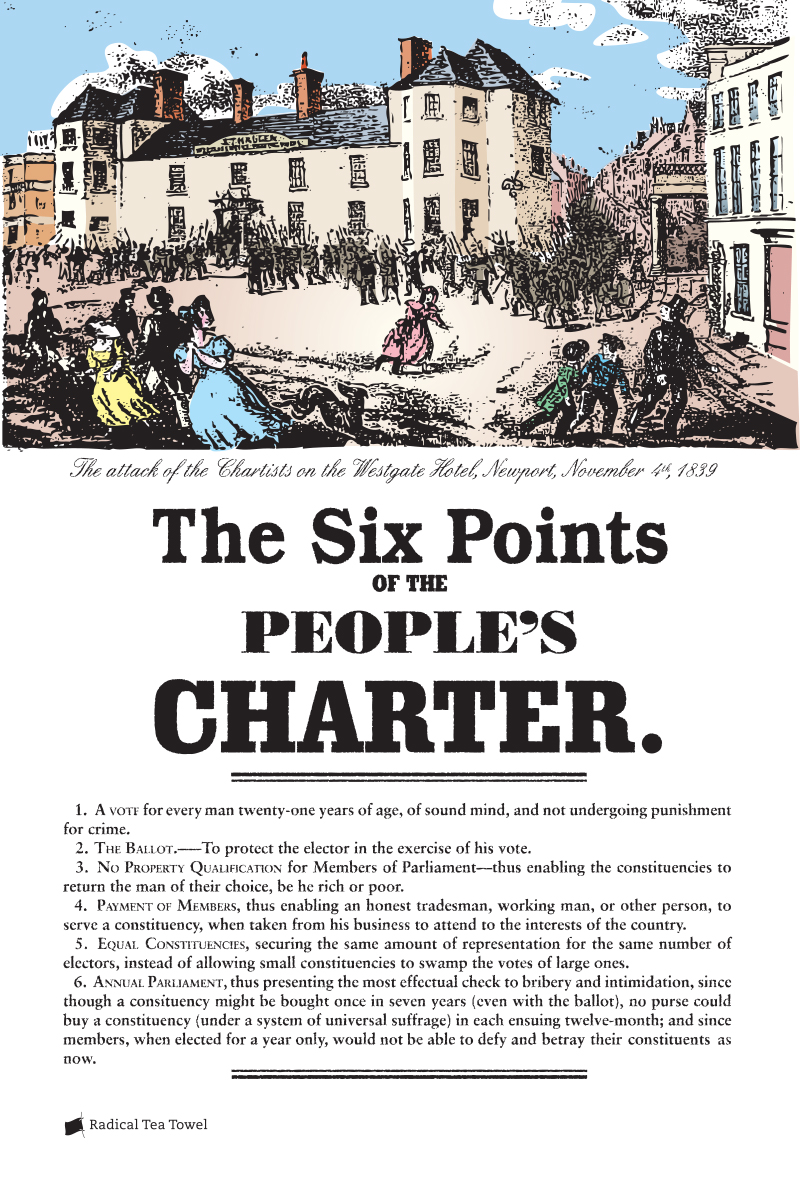2019 and the Relevance of Radical History
Posted by Pete on 31st Dec 2018
Major forthcoming dates include the bicentenary of the Peterloo Massacre and round anniversaries for the French Revolution and Chartist Rising in Newport. But what's the real point of recalling these events?
We're on the threshold of a year full of milestones for progressive politics - some will be remembered with warmth, others with sorrow.
2019, for example, will be the centenary of the Amritsar Massacre, when British Empire troops murdered hundreds of unarmed civilians in the Punjab - an event which cemented demands for Indian freedom.

The beginning of a radical year
2019 is also the bicentenary of another massacre of unarmed civilians by the British state - this time closer to home, in Manchester. It was August 1819 when, on St Peter's Field (now St Peter's Square), cavalrymen rode down Mancunian workers as they agitated for the right to vote regardless of property.
The history of British democracy makes no sense without an understanding of the Peterloo Massacre.
But 2019 isn't just about reminders of defeat and martyrdom for progressives and radicals. Far from it.
This coming year (the 1st January, in fact) it will be 60 years since Fidel Castro, Che Guevara, and their band of rebels drove into Havana and displaced the brutal Fulgenico Batista, to the delight of hundreds of thousands of Cubans.
2019 is also a round anniversary of the French Revolution of 1789, which sent up the star of ' Liberté, Egalité, Fraternité!' - a beacon for radical politics ever since.
It's 30 years since the Fall of the Berlin Wall, 150 years since Emma Goldman was born, 180 years since the Chartist Rising in Newport - the list goes on and on!
I could, in fact, continue reeling out 2019 anniversaries until the cows come home, but genuine Radical History is about more than just names and dates.
There are better and worse ways of remembering our radical past.
Take the Newport Rising as an example. One way to remember it could be: "Today (the 4th of November) is the anniversary of the Newport Rising for democracy, how fantastic!"
While the Newport Rising was certainly fantastic, there's much more that needs to be said.

Above: 2019 will see the launch of a new colour design of our People's Charter tea towel
Remembering the age old fights for our freedom
Whether 180 years ago, or 18, the events we choose to mark shouldn't be treated as something sealed off like artefacts behind some museum glass pane - to be marvelled at before getting on with our day.
There is no glass pane between us and history. The past we speak about - its events and characters and processes interacts with us in dynamic ways and is a big, if not the biggest, part of our present.
History, in other words, shouldn't be understood as the opposite of 'news', 'current affairs', or - God forbid - 'relevance'.
So when we think about the Newport Rising of 1839 we could think about how it created the present we live in, and also how it was itself caused by factors similar to those shaping our lives in the 21st century.
The resolve shown by those Chartists in South Wales won us ordinary Britons the vote we use in elections today; and the nemesis they faced - a ruling elite, terrified of true democracy - continues (sadly) to restrain us two centuries later.
What's more, the personal stories of the Newport Rising continue to inspire.
George Shell, for example, was a 17-year-old carpenter's son and one of the 22 Chartists killed by the army in Newport. The letter he wrote to his parents just before the rising read simply:
"I shall this night be engaged in a glorious struggle for freedom and should it please God to spare my life, I shall see you soon, but if not, grieve not for me. I shall have fell in a noble cause."
In 2019 remember our radical past so we can learn in present
That's a commitment to human emancipation that remains relevant in the world of 2019. The Chartists are something for the present, as well as of the past.
What's true of Newport is true of all radical moments in our past - they aren't far away and separated from us, they're as immediate to our lives as the updates you get from BBC Breakfast.
Our radical past isn't only a field of dead demonstrators to cry for and triumphant revolutionaries to applaud. It's the windows which give us better perspectives on the structures that govern our society, and the classrooms teaching us how best to live progressive lives.
The radical history that awaits us in 2019, then, isn't just going to bring us many things to 'look back on'. Handled properly, we'll also find plenty in it to pick up and take forward with us against the challenges faced by progressives across the world today.
Faced with a prospect as inviting as this, all I can think to do is borrow a slogan from Spain's anti-fascist Republicans: ¡Adelante! (Forward!)
